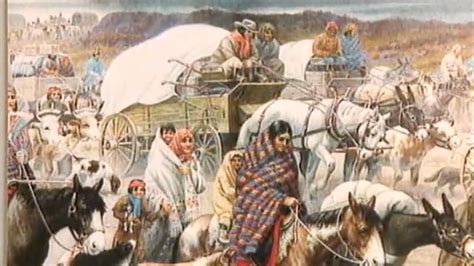How Was Andrew Jackson Related to the Trail of Tears?
Andrew Jackson's presidency is inextricably linked to the Trail of Tears, a dark chapter in American history. While he didn't directly force individuals to march, his policies and actions as president were instrumental in the tragic displacement of thousands of Cherokee people. Understanding his role requires examining his beliefs, his administration's actions, and the broader context of westward expansion.
Jackson's Views on Native Americans
Jackson held deeply ingrained prejudices against Native Americans, viewing them as obstacles to westward expansion and national progress. He believed in the assimilation of Native Americans into white society or their removal to lands west of the Mississippi River. This perspective significantly shaped his policies and actions during his presidency. He saw them not as sovereign nations, but as dependent populations.
The Indian Removal Act of 1830
This act, signed into law by Jackson, provided the legal framework for the forced relocation of Native American tribes from their ancestral lands in the southeastern United States. While the act itself didn't specify the Cherokee, it paved the way for their removal and the subsequent Trail of Tears. Jackson's strong support for this legislation was crucial to its passage.
The Role of the Supreme Court
The Supreme Court, under Chief Justice John Marshall, ruled against the state of Georgia's attempts to seize Cherokee lands in Worcester v. Georgia (1832). However, Jackson famously disregarded the Court's decision, stating, "John Marshall has made his decision; now let him enforce it!" This blatant disregard for the rule of law demonstrated Jackson's commitment to the removal policy, even at the expense of judicial authority. This act of defiance solidified his legacy as a driving force behind the Trail of Tears.
The Military Enforcement of Removal
Following the Supreme Court's decision, the U.S. Army, under Jackson's orders, forcibly removed the Cherokee from their homes in Georgia and other states. Thousands perished from disease, starvation, and exposure during the arduous journey westward. The brutality of the removal was a direct consequence of Jackson's unwavering support for the Indian Removal Act and his disregard for legal challenges.
The Legacy of Andrew Jackson and the Trail of Tears
Andrew Jackson's legacy remains complex and controversial. While he's celebrated by some for his populist appeal and expansionist policies, his role in the Trail of Tears serves as a stark reminder of the devastating consequences of racial prejudice and governmental overreach. His actions demonstrate the profound and lasting impact a president's decisions can have on the lives of marginalized communities. Understanding his connection to the Trail of Tears is vital to comprehending the painful history of Native American displacement in the United States.
Keywords: Andrew Jackson, Trail of Tears, Indian Removal Act, Cherokee, Native American, westward expansion, Worcester v. Georgia, forced removal, Indian removal, Jackson's presidency, Supreme Court, US Army, American history, Native American history.
